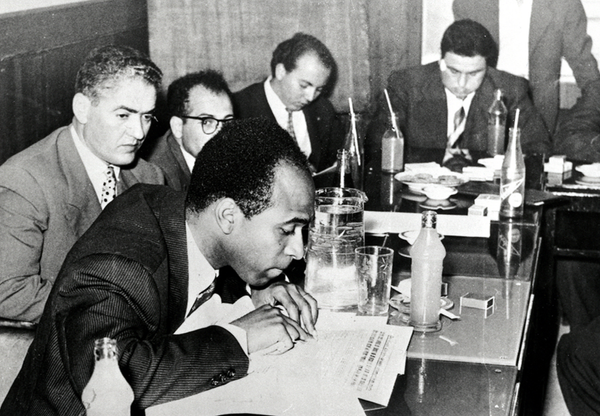The Rebel’s Clinic: The Revolutionary Lives of Frantz Fanon
By Adam Shatz
Farrar, Straus, and Giroux, 464 pages, $32
Fifty years ago, Portugal withdrew from its African colonies after a protracted war. With this retreat, European colonialism came full circle: The Iberian seafaring power, which had kickstarted imperial expansion with the conquest of Ceuta in 1415, had now surrendered the last remaining European colonies in Africa. Leaving aside a few odd exceptions—such as Macau, which remained under Portuguese control until 1999—decolonization was a fait accompli by the mid-1970s. Nonetheless, talk of “decolonization” and demands to “decolonize” this and that have never ceased—and indeed, have grown ever more ubiquitous. According to Google Ngram, the use of the word “decolonization” in books exploded in the final decade of the 20th century and has continued to proliferate in the new millennium. The further we get from the raw facts of actual colonialism, the more the concept’s metaphorical potential seems to expand.
The posthumous reception of the Martinican-born psychiatrist and philosopher Frantz Fanon is a case in point. Fanon died of leukemia in 1961, the year before the cause to which he had devoted his later life—Algerian independence—came to fruition. His most widely read text on the subject of decolonization, The Wretched of the Earth, was composed in the heat of the struggle, while he was working as a roving spokesman for Algeria’s National Liberation Front, or FLN. Fanon’s amanuensis, Marie-Jeanne Manuellan, characterized the two books he dictated to her during his years in Algeria as “pamphlets” that were written in service of the FLN’s propaganda aims. But the second of them, The Wretched of the Earth, later went on to be described as “the Bible of decolonization” by the cultural theorist Stuart Hall and became a foundational text in the field of postcolonial theory, which emerged several decades after Fanon’s death.
Attesting to the enduring interest in his work, Fanon has been the subject of multiple biographies. The most recent, The Rebel’s Clinic, by Adam Shatz, appears at a more opportune moment than his publisher could have anticipated. In the wake of Hamas’s Oct. 7 attack on Israel, aphorisms by Fanon—such as “Decolonization is always a violent phenomenon”—circulated widely on social media, and debates over decolonization, settler-colonialism, and related concepts spilled from the seminar room into the streets. But this renewed relevance doesn’t only derive from the fact that the Jewish state is often derided by activists as a vestige of Western colonialism, or that the Palestinian cause is a remnant of the international liberation movement Fanon championed. Just as important is the broader context in which the Hamas onslaught occurred: the first coordinated challenge to the Western-led order since the end of the Cold War, by a constellation of powers arrayed around Moscow, Beijing, and Tehran.
“Today, a comparable ‘Global-Southism’ is on the rise.”
